After Two Years with the State Responsibility System for Dementia
- Regdate2019-10-14 15:57
- Hit1112
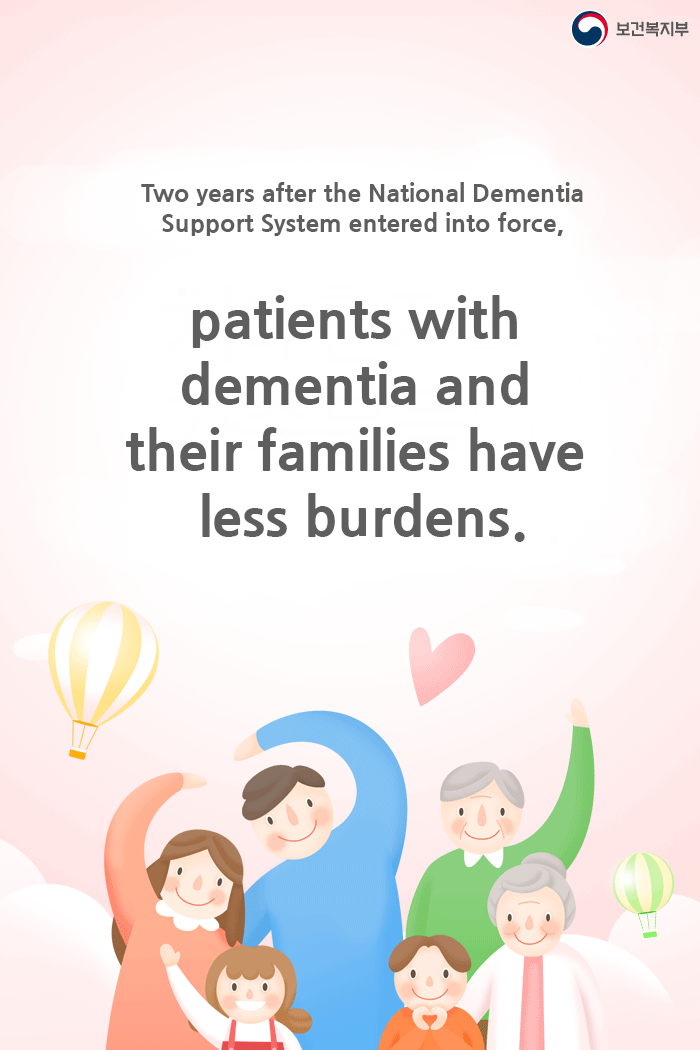
Two years after the National Dementia Support System entered into force,
patients with dementia and their families have less burdens.
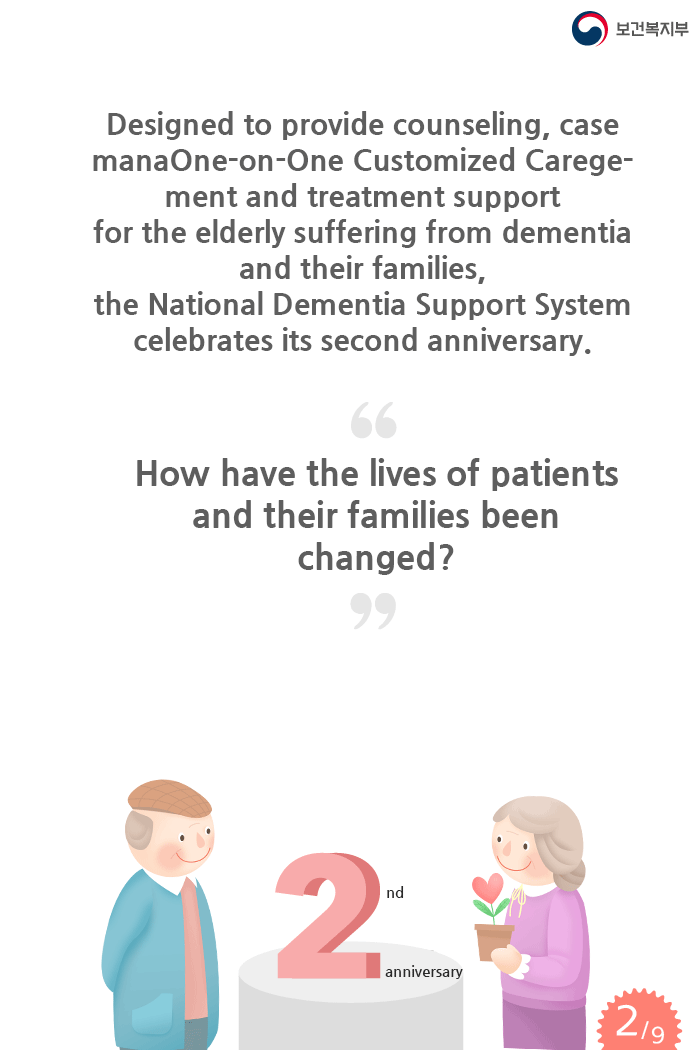
Designed to provide counseling, case management and treatment support for the elderly suffering from dementia and their families, the National Dementia Support System celebrates its second anniversary.
“How have the lives of patients and their families been changed?“
2nd anniversary
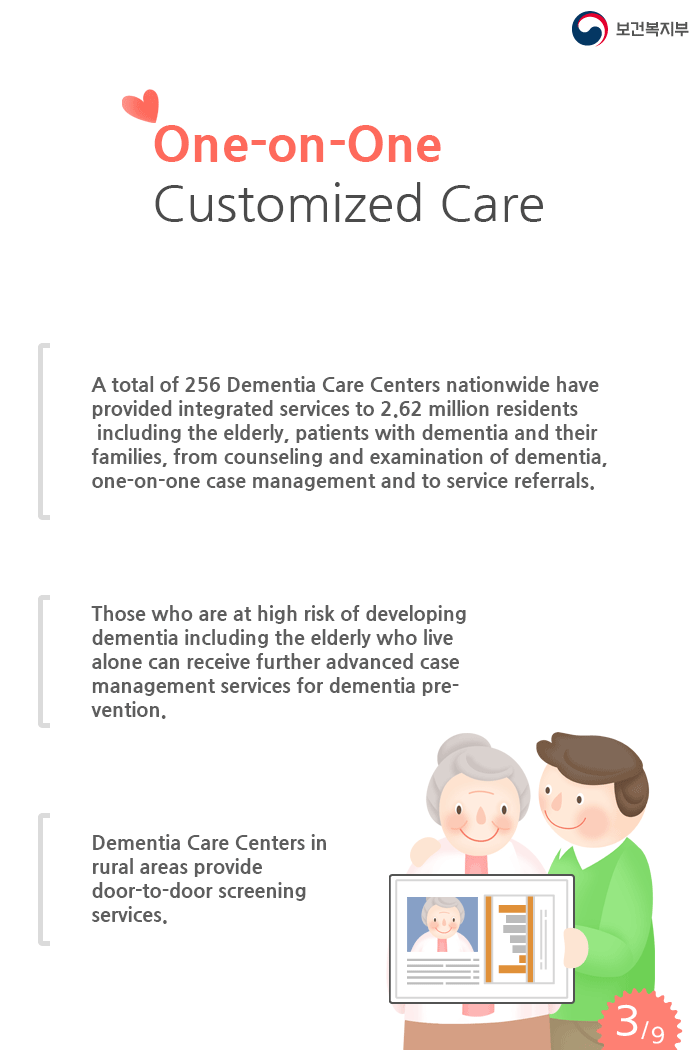
One-on-One Customized Care
A total of 256 Dementia Care Centers nationwide have provided integrated services to 2.62 million residents including the elderly, patients with dementia and their families, from counseling and examination of dementia, one-on-one case management and to service referrals.
Those who are at high risk of developing dementia including the elderly who live alone can receive further advanced case management services for dementia prevention.
Dementia Care Centers in rural areas provide door-to-door screening services.
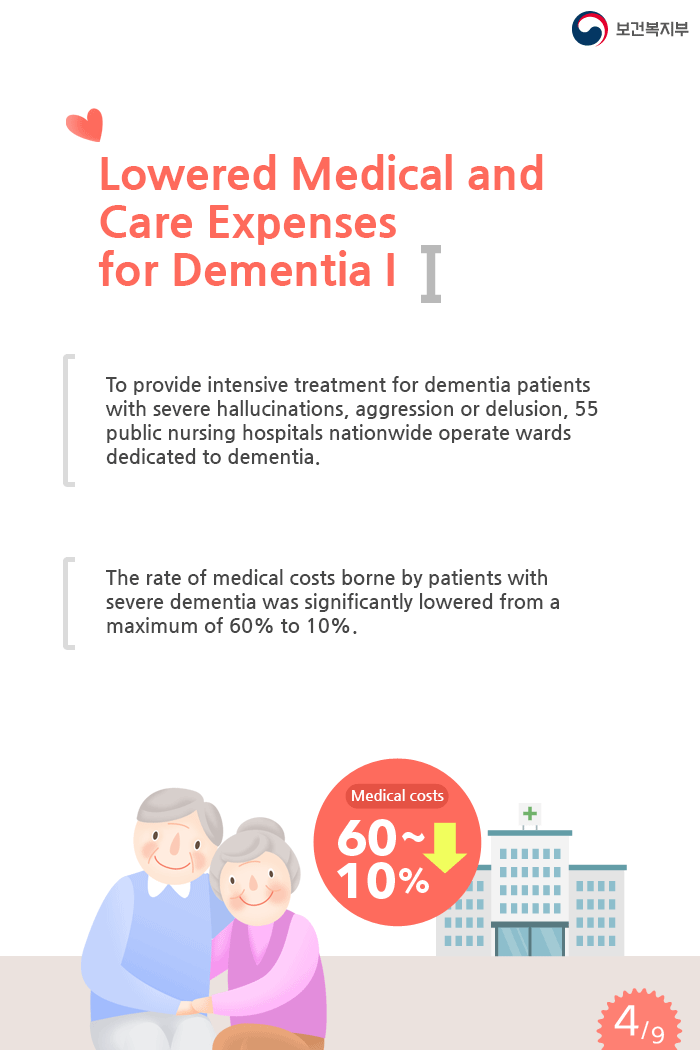
Lowered Medical and Care Expenses for Dementia I
To provide intensive treatment for dementia patients with severe hallucinations, aggression or delusion, 55 public nursing hospitals nationwide operate wards dedicated to dementia.
The rate of medical costs borne by patients with severe dementia was significantly lowered from a maximum of 60% to 10%.
Medical costs 60~10%
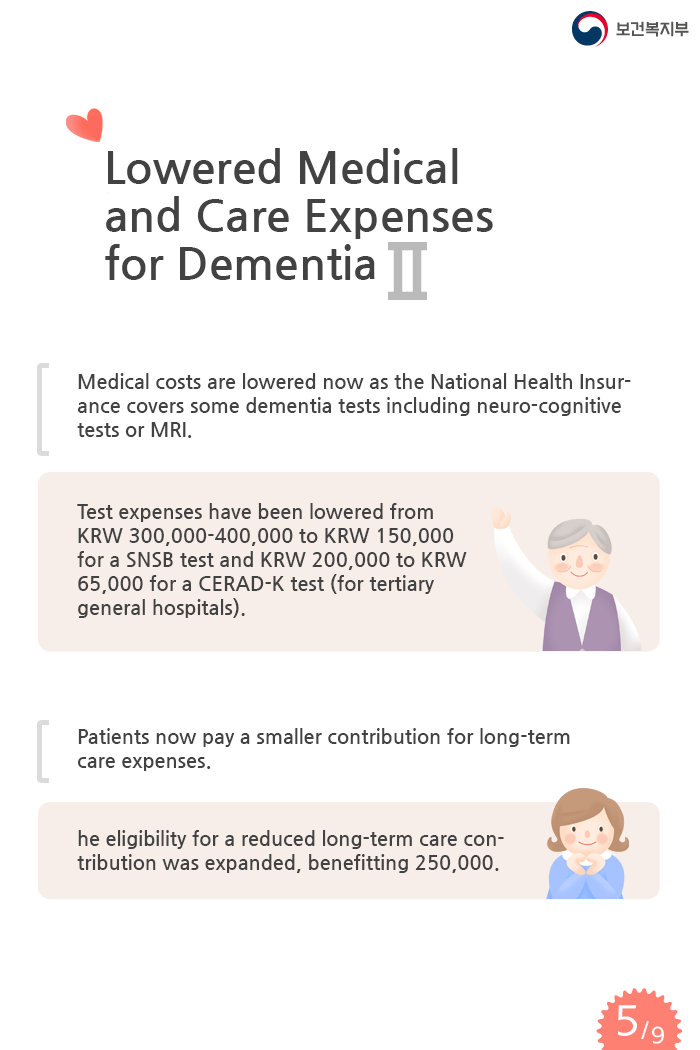
Lowered Medical and Care Expenses for Dementia II
Medical costs are lowered now as the National Health Insurance covers some dementia tests including neuro-cognitive tests or MRI.
Test expenses have been lowered from KRW 300,000-400,000 to KRW 150,000 for a SNSB test and KRW 200,000 to KRW 65,000 for a CERAD-K test (for tertiary general hospitals).
Patients now pay a smaller contribution for long-term care expenses.
The eligibility for a reduced long-term care contribution was expanded, benefitting 250,000.
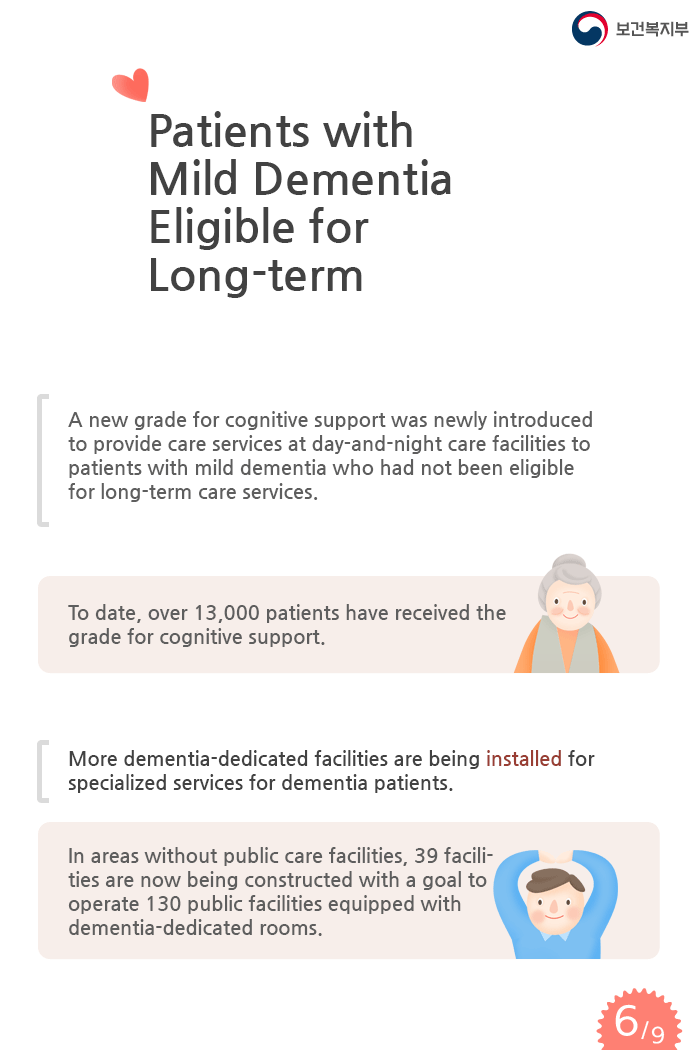
Patients with Mild Dementia Eligible for Long-term Care Service
A new grade for cognitive support was newly introduced to provide care services at day-and-night care facilities to patients with mild dementia who had not been eligible for long-term care services.
To date, over 13,000 patients have received the grade for cognitive support.
More dementia-dedicated facilities are being installed for specialized services for dementia patients.
In areas without public care facilities, 39 facilities are now being constructed with a goal to operate 130 public facilities equipped with dementia-dedicated rooms.
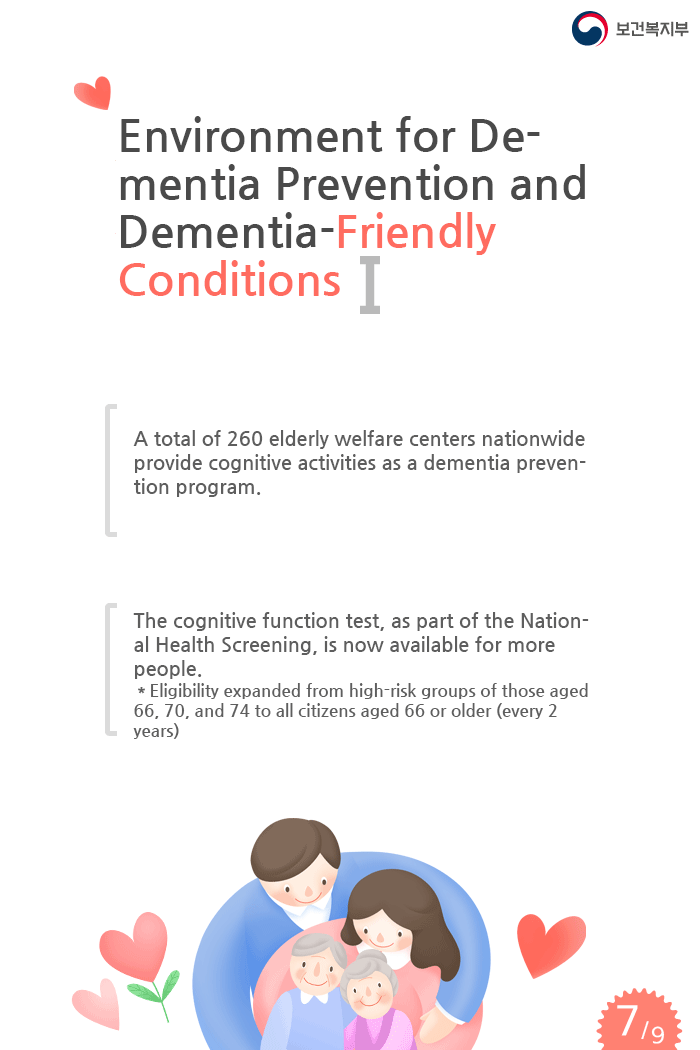
Environment for Dementia Prevention and Dementia-Friendly Conditions I
A total of 260 elderly welfare centers nationwide provide cognitive activities as a dementia prevention program.
The cognitive function test, as part of the National Health Screening, is now available for more people.
*Eligibility expanded from high-risk groups of those aged 66, 70, and 74 to all citizens aged 66 or older (every 2 years)
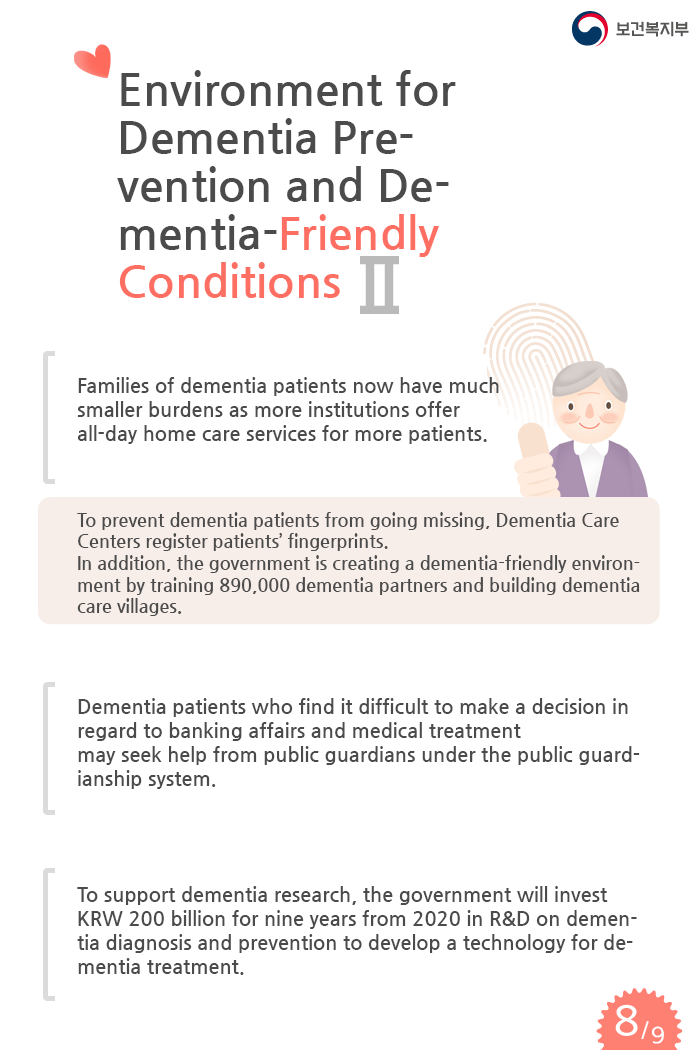
Environment for Dementia Prevention and Dementia-Friendly Conditions II
Families of dementia patients now have much smaller burdens as more institutions offer all-day home care services for more patients. To prevent dementia patients from going missing, Dementia Care Centers register patients’ fingerprints. In addition, the government is creating a dementia-friendly environment by training 890,000 dementia partners and building dementia care villages.
Dementia patients who find it difficult to make a decision in regard to banking affairs and medical treatmentmay seek help from public guardians under the public guardianship system.
To support dementia research, the government will invest KRW 200 billion for nine years from 2020 in R&D on dementia diagnosis and prevention to develop a technology for dementia treatment.
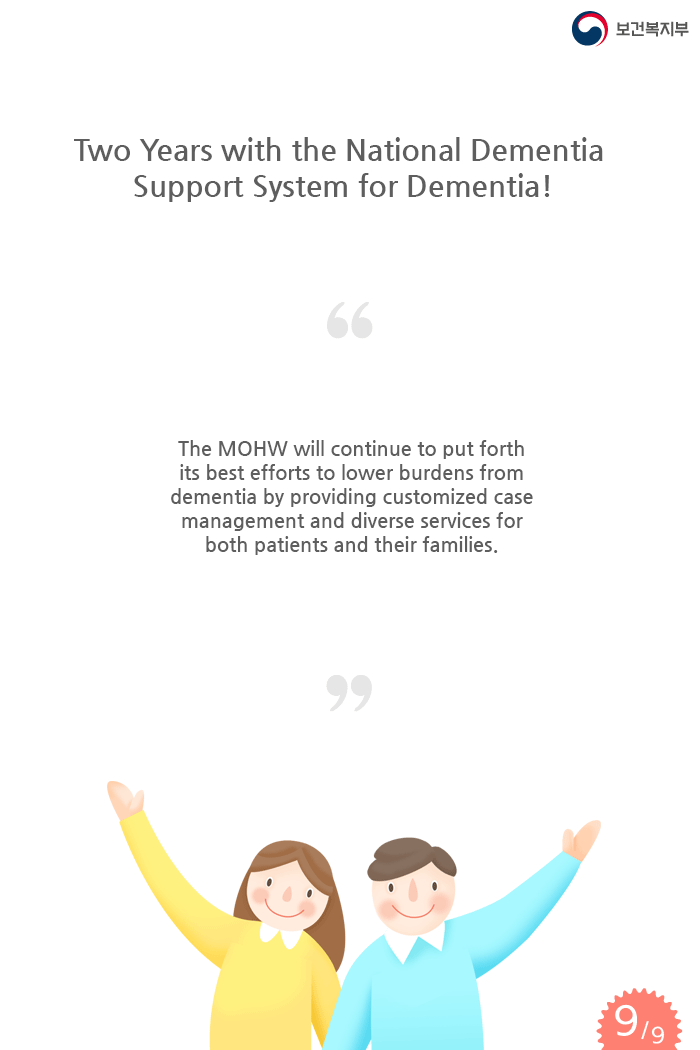
Two Years with the National Dementia Support System for Dementia!
“The MOHW will continue to put forth its best efforts to lower burdens from dementia by providing customized case management and diverse services for both patients and their families.“